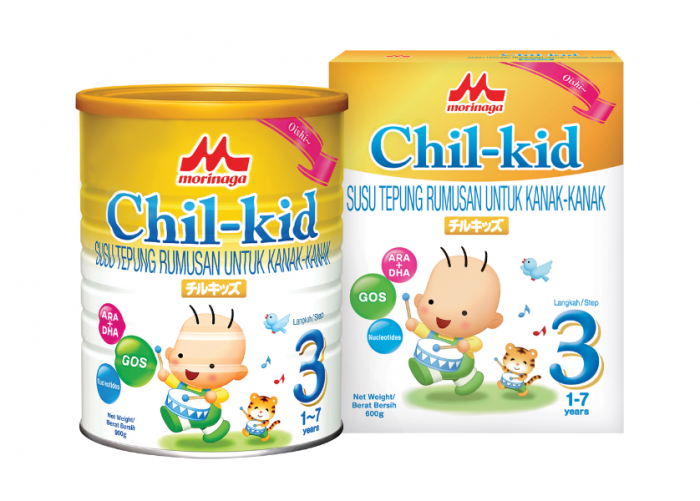In this day and age when academic results and paper qualifications make the difference between getting a good career or not getting one at all, doing well in school and scoring high marks in exams are important components of your child’s education right from the earliest years of his life.
“Study hard! Concentrate on your schoolwork!” are words we often say to our children.
As parents, we all want our kids to become the best that they can be in life but academics aren’t the only things that will enable him to reach his highest potential. There are many other aspects that contribute to success such as ensuring he becomes a well-rounded child who will have practical life skills as well as resilience in handling and thriving despite all the challenges he will face as he grows up.
Therefore, as parents, you want to give him the opportunity to build his self-esteem and confidence, develop critical thinking skills that will help him solve problems, foster independence, grow his innate talents and skills to open the mind, imagination and creativity, and of course, shape his moral wherewithal including being kind, empathetic, courteous and respectful while teaching him self-discipline, listening skills, responsibility, teamwork, and communication skills.
These are indeed tall orders but being a parent whose child’s future is dependent on how we shape it, the job of raising a well-rounded individual primed for success is not an easy one. The key is to make certain that all areas are developed and while parenting seems to be a daunting task, there are various steps we can take. The first is to ensure that our children experience a balanced upbringing ─ one that combines and provides for intellectual, emotional as well as physical development and health. This is to ensure they are fully prepared to take on the world as they grow up.
Here are four suggestions on how you can put those critical building blocks together to build a well-rounded child.
1: Provide Your Child a Loving and Supportive Home
 Children are our dependents and depend on us completely to provide not just food and shelter but also a strong support system that makes them feel happy, secure, confident and loved. Discipline is important but as parents, we must be fair. Never lie, demean or play pranks on them for a laugh at their expense. Making children confused about where they stand in the family will do nothing to build their self-esteem, trust or respect for their family.
Children are our dependents and depend on us completely to provide not just food and shelter but also a strong support system that makes them feel happy, secure, confident and loved. Discipline is important but as parents, we must be fair. Never lie, demean or play pranks on them for a laugh at their expense. Making children confused about where they stand in the family will do nothing to build their self-esteem, trust or respect for their family.
At the same time, however, don’t spoil them or give in to their demands just because they will throw a tantrum otherwise. The end result will be an entitled child who will need spoon feeding for the rest of his life.
Help your child grow into the adult you want him to be, and that is: confident, happy and well-adjusted. And in the midst of his growing up journey which will be filled with trials and tribulations, allow him to fail so that he may learn from his failures while you gently provide support and love.
2: Accelerate his Learning Processes by Stimulating his Brain
 Growing up is a learning process and at the centre of this learning is the brain[1]. Therefore, stimulate the brain to learn from the very beginning, by interacting and engaging with him while taking advantage of everyday events as natural learning opportunities.
Growing up is a learning process and at the centre of this learning is the brain[1]. Therefore, stimulate the brain to learn from the very beginning, by interacting and engaging with him while taking advantage of everyday events as natural learning opportunities.
Your child may not have learnt to speak when he is still a baby but he sure is trying to communicate right from the start. He tries to attract your attention by crying perhaps, to tell you that he is hungry or uncomfortable or in pain. Or he may make sounds and babble to tell you something.
Being able to communicate well is very important to your child’s success in life. You can boost his communication skills by engaging and responding to these baby sounds, cues and actions. Have a conversation with him even if he is just making baby talk. He may not understand the exact words you say but he is watching your facial expression and listening to the inflection of your speech and the tone of your voice. According to Unicef, the number of words a baby is exposed to early in life will determine the amount of words in the child’s vocabulary[2] by age two, and his reading and comprehension skills as he starts reading.
Reading to your child will also build his language skills. Even at three months of age, a baby can distinguish each sound used for each word. By the time he can speak, ask him simple questions about the story you are reading such as, “What are they doing?” or “How many were there?” This will trigger memory skills and encourage him to think and speak out the answer.
Of course, at the bottom of it and providing support for all of this brain activity is nutrition. When a child is born, his brain is not fully developed although he already possesses all the brain cells he will have in his lifetime. What is important for learning and memory to “happen” are the synapses or connections between neurons that the brain will make with each event the child experiences.
Synapes are part of the circuitry that connects neurons in the brain to neurons in the rest of the body such as the sensory organs, muscles and the central nervous system. The brain learns and grows the fastest in the first three years of life. The developing brain therefore needs all the essential nutrients to form and maintain its structure.
According to this research[3] on the ‘Effects of Nutritional Interventions on the Cognitive Development of Preschool Age Children’, infant and child cognitive development is dependent on adequate nutrition. Those who do not receive sufficient nutrition are at high risk of exhibiting impaired cognitive skills.
Morinaga Chil-kid, formulated for children aged one to seven years old, contains long-chain polyunsaturated fatty acids (LCPs) such as ARA and DHA specially for brain development in the growing child.
Arachidonic Acid (ARA) is a polyunsaturated omega-6 fatty acid while Docosahexaenoic Acid (DHA) is a polyunsaturated omega-3 fatty acid. Both fatty acids resemble the primary fatty acids found in the brain and are essential components for the child’s brain growth.
Not only does ARA serve to build the brain, it also boosts immunity and immune response, bone formation, blood flow and blood vessel function. This is important as a child who is anaemic or who is constantly sick won’t have the alertness or focus or strength to be doing much learning.
DHA, on the other hand, is essential for the growth and functional development of the brain, nervous system and overall brain development. It also supports visual development for clear eyesight and this, in turn, boosts learning, attention span and memory retention.
Especially for children who have moved on to eating solid food but who have yet to eat sufficient amounts of the right nutrition, or who don’t have the time to eat properly, Morinaga Chil-kid, with its 45 essential nutrients formulated for your child’s optimum development, can fill in on where he may be missing out in his diet.
3: Encourage him to be Outgoing, Active and Curious
 Encourage your child to be outgoing, active and curious about the world around him so that he would want to step out of his comfort zone and try new things. This way he gets to learn new skills and be enriched by the different environments, situations and activities as he explores and develops his own talents and interests ─ be they art, music, sports or a hobby.
Encourage your child to be outgoing, active and curious about the world around him so that he would want to step out of his comfort zone and try new things. This way he gets to learn new skills and be enriched by the different environments, situations and activities as he explores and develops his own talents and interests ─ be they art, music, sports or a hobby.
In the end, the well-rounded child is balanced in many different areas of his life. While he has social skills interacting with people apart from his immediate family, he also has his own interests and pursuits. He is physically active, and is flexible towards changes in schedules and situations and understands safety, has coping skills to deal with uncomfortable and stressful situations.
4: Encourage him to Follow the Path of Good Health
 A 2021 research[4] on gut bacteria and how dietary sugar can cause memory disruption underscores the importance of teaching children good eating habits and instilling a healthy respect for good health.
A 2021 research[4] on gut bacteria and how dietary sugar can cause memory disruption underscores the importance of teaching children good eating habits and instilling a healthy respect for good health.
The research showed that positive eating habits can boost overall health and impact learning and academic performance. A high sugar consumption, it said, can diminish learning capacity due to imbalances in gut bacteria.
Conversely, eating whole foods such as eggs (for choline), oily fish (for Omega-3 Fatty Acids), meats (for protein), vegetables and fruits (for folate and antioxidants), beans (for zinc) and dairy (for protein, calcium and Vitamin D) in all its forms such as yoghurt (for gut health) can make a difference to his overall outlook and future. These foods are vital especially for children’s brains[5] and overall health in the first few years of life.
Several studies[6] have found that diets high in refined sugars and saturated fats increase[7] the risk of children developing hyperactivity and Attention Deficit Hyperactivity Disorder (ADHD). Carbonated drinks, fruit juices, syrups sold at the stalls, ice-cream, lifestyle drinks such as bubble tea, canned fruit, desserts, candy and chocolates are some examples of the foods and beverage that children crave but are extremely high in sugar.
This is where parents will have to monitor their food intake and help them make the right choices about which foods to eat and which to cut back on. In our food-centric society, the goal is to lay the foundation for the child to develop a healthy relationship with food.
However, healthy eating is not just about what to eat but also when to eat. It has been found that children who skip breakfast regularly will have difficulty concentrating and have low moods which detract from learning. This is because children, particularly those between ages four and 10, have a cerebral metabolic glucose utilisation rate twice that of adults[8]. The lack of glucose required by the brain and the lack of energy needed to “power up” for the day through skipping breakfast can negatively impact behaviour, concentration, attention and overall school performance.
Yet breakfast is the most frequently skipped meal of the day.
 This is where Morinaga Chil-kid can step in once again. As the milk is optimally balanced nutrition fortified with brain food ARA and DHA, Omega 3 & 6 LCPs, prebiotics such as Galacto-oligosaccharides (GOS) and Nucleotides for cell health, immune function and gastrointestinal development, 100% protein, and 27 vitamins and minerals, a quick glass of Morinaga Chil-kid in the morning is sufficient to satisfy the energy and nutritional demands of an active, growing child even if he has no time to eat a proper breakfast before he rushes to school.
This is where Morinaga Chil-kid can step in once again. As the milk is optimally balanced nutrition fortified with brain food ARA and DHA, Omega 3 & 6 LCPs, prebiotics such as Galacto-oligosaccharides (GOS) and Nucleotides for cell health, immune function and gastrointestinal development, 100% protein, and 27 vitamins and minerals, a quick glass of Morinaga Chil-kid in the morning is sufficient to satisfy the energy and nutritional demands of an active, growing child even if he has no time to eat a proper breakfast before he rushes to school.
Morinaga Chil-kid is a Japanese formulation made with 100% cow’s milk that comes from the Netherland’s natural pastures.
The formulation is backed by Morinaga’s R&D Institute in Japan with a history of over 100 years of innovation. Furthermore, all products undergo stringent product examination and double inspections before being exported to Malaysia. To learn more about Morinaga Chil-kid, feel free to browse through the rest of this site.

 Children are our dependents and depend on us completely to provide not just food and shelter but also a strong support system that makes them feel happy, secure, confident and loved. Discipline is important but as parents, we must be fair. Never lie, demean or play pranks on them for a laugh at their expense. Making children confused about where they stand in the family will do nothing to build their self-esteem, trust or respect for their family.
Children are our dependents and depend on us completely to provide not just food and shelter but also a strong support system that makes them feel happy, secure, confident and loved. Discipline is important but as parents, we must be fair. Never lie, demean or play pranks on them for a laugh at their expense. Making children confused about where they stand in the family will do nothing to build their self-esteem, trust or respect for their family. Growing up is a learning process and at the centre of this learning is
Growing up is a learning process and at the centre of this learning is  Encourage your child to be outgoing, active and curious about the world around him so that he would want to step out of his comfort zone and try new things. This way he gets to learn new skills and be enriched by the different environments, situations and activities as he explores and develops his own talents and interests
Encourage your child to be outgoing, active and curious about the world around him so that he would want to step out of his comfort zone and try new things. This way he gets to learn new skills and be enriched by the different environments, situations and activities as he explores and develops his own talents and interests  A
A  This is where Morinaga Chil-kid can step in once again. As the milk is optimally balanced nutrition fortified with brain food ARA and DHA, Omega 3 & 6 LCPs, prebiotics such as Galacto-oligosaccharides (GOS) and Nucleotides for cell health, immune function and gastrointestinal development, 100% protein, and 27 vitamins and minerals, a quick glass of Morinaga Chil-kid in the morning is sufficient to satisfy the energy and nutritional demands of an active, growing child even if he has no time to eat a proper breakfast before he rushes to school.
This is where Morinaga Chil-kid can step in once again. As the milk is optimally balanced nutrition fortified with brain food ARA and DHA, Omega 3 & 6 LCPs, prebiotics such as Galacto-oligosaccharides (GOS) and Nucleotides for cell health, immune function and gastrointestinal development, 100% protein, and 27 vitamins and minerals, a quick glass of Morinaga Chil-kid in the morning is sufficient to satisfy the energy and nutritional demands of an active, growing child even if he has no time to eat a proper breakfast before he rushes to school.